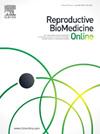PGT-M 的良好实验室实践:土耳其生殖医学学会指南
IF 3.7
2区 医学
Q1 OBSTETRICS & GYNECOLOGY
引用次数: 0
摘要
本指南由土耳其生殖医学会编写,目的是根据从业人员的经验和需求,确定植入前基 因检测(PGT)外包项目的条件和要求。该指南旨在为辅助生殖技术中心、基因诊断中心、从事生殖健康工作的非政府组织、法律专家、从事实验室认证工作的顾问、专门研究伦理问题的学者以及政策制定者提供一份参考文件。联合会旨在提供建议,以应对基因检测所面临的挑战,特别是由于土耳其近亲结婚率较高而导致的单基因疾病的基因检测(PGT-M)。为此,本摘要文件特别包括了有关 PGT-M 实践的挑战和建议,旨在发现和帮助预防导致误诊的错误。这些建议可根据其他地区的情况进行修改。本文章由计算机程序翻译,如有差异,请以英文原文为准。
Good laboratory practice for PGT-M: Turkish Society of Reproductive Medicine guidelines
This guideline was prepared by the Turkish Society of Reproductive Medicine to define the conditions and requirements for an outsourced preimplantation genetic testing (PGT) programme in line with the experience and needs of practitioners. This guideline is intended to be a reference document for assisted reproductive technology centres, genetic diagnosis centres, non-governmental organizations working on reproductive health, legal experts, consultants working on laboratory accreditation, academicians specializing in ethical issues, and policy makers. The Consortium aims to provide recommendations addressing the challenges of genetic testing, especially PGT for monogenic diseases (PGT-M) due to the high rate of consanguineous marriage in Turkey. For this purpose, this summary document specifically includes challenges and recommendations regarding PGT-M practice, and aims to identify and aid in prevention of errors leading to misdiagnosis. The recommendations can be modified to fit other locations.
求助全文
通过发布文献求助,成功后即可免费获取论文全文。
去求助
来源期刊

Reproductive biomedicine online
医学-妇产科学
CiteScore
7.20
自引率
7.50%
发文量
391
审稿时长
50 days
期刊介绍:
Reproductive BioMedicine Online covers the formation, growth and differentiation of the human embryo. It is intended to bring to public attention new research on biological and clinical research on human reproduction and the human embryo including relevant studies on animals. It is published by a group of scientists and clinicians working in these fields of study. Its audience comprises researchers, clinicians, practitioners, academics and patients.
Context:
The period of human embryonic growth covered is between the formation of the primordial germ cells in the fetus until mid-pregnancy. High quality research on lower animals is included if it helps to clarify the human situation. Studies progressing to birth and later are published if they have a direct bearing on events in the earlier stages of pregnancy.
 求助内容:
求助内容: 应助结果提醒方式:
应助结果提醒方式:


